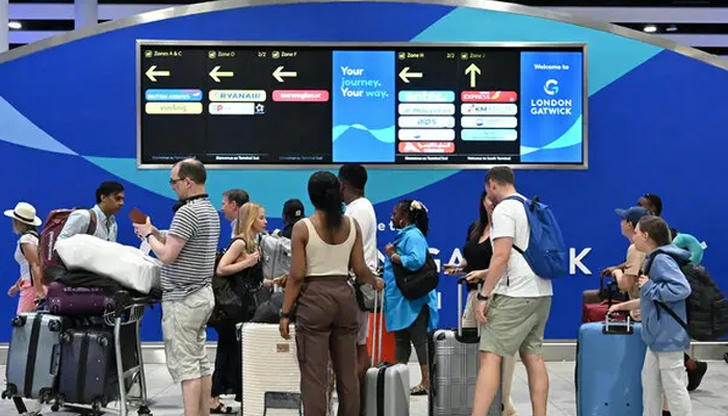Flying Smart: Tips for Finding Cheap Flights and Avoiding Delays
Flying has become one of the most popular and convenient ways to travel long distances. However, finding affordable flights and avoiding frustrating delays can often feel like a challenge. Ticket prices fluctuate constantly, and unexpected delays or cancellations can throw off your travel plans. Fortunately, with a bit of knowledge and planning, you can fly smarter—saving money and reducing stress along the way. In this article, we’ll share practical tips for finding cheap flights and minimizing the risk of delays.

How to Find Cheap Flights
1. Book Early—but Stay Alert for Last-Minute Deals
Generally, booking your flight several weeks or even months in advance can get you the best prices. Airlines often release their cheapest seats early, and these sell out fast. However, some last-minute deals do pop up if airlines want to fill remaining seats close to departure. So, if your travel dates are flexible, keep an eye out for these deals—but don’t wait too long if your schedule is fixed.
2. Use Multiple Flight Search Engines and Set Price Alerts
Popular sites like Skyscanner, Google Flights, and Momondo allow you to compare prices across many airlines and booking platforms. These tools often include filters for flexible dates and nearby airports. Setting price alerts can notify you when fares drop, helping you book at the optimal time.
3. Be Flexible With Your Travel Dates and Times
Flight prices can vary significantly depending on the day of the week, season, and time of day. Avoid traveling on weekends, holidays, or peak travel seasons when prices spike. Early morning, late-night, or midweek flights tend to be cheaper and less crowded.
4. Consider Alternative Airports
Flying into or out of smaller or alternate airports near your destination can save money. For example, if you’re flying to New York, check prices for Newark or JFK. Just be sure to factor in the cost and time of ground transportation when comparing options.
5. Keep an Eye on Airline Promotions and Use Rewards Programs
Sign up for newsletters from airlines and travel deal websites to receive exclusive offers. Using airline loyalty points or credit card rewards can also significantly reduce your ticket cost or even score a free flight.
6. Look Into Multi-Leg Journeys and Budget Airlines
Sometimes booking connecting flights or mixing airlines can be cheaper than a direct ticket. Budget airlines often offer low base fares, but be mindful of extra fees for baggage and seat selection. Always check the total cost before booking.
Tips to Avoid Flight Delays and Cancellations

1. Choose Early Morning Flights
Flights scheduled early in the day are statistically less likely to be delayed. This is because delays rarely carry over from previous flights early in the morning, and air traffic is lighter.
2. Fly With Reliable Airlines and Use Major Airports
Legacy carriers and large hub airports generally have better on-time performance and more resources to handle disruptions. Smaller airports and low-cost carriers may be more prone to delays.
3. Allow Plenty of Time for Connections
If your itinerary includes connecting flights, build in enough time—at least two hours for domestic and three hours for international connections—to handle potential delays and security checks.
4. Check-In Online and Arrive Early
Online check-in lets you avoid long queues at the airport and secure better seating. Arriving early gives you a buffer in case of security or baggage delays.
5. Monitor Flight Status and Weather Conditions
Use airline apps, flight tracking websites, or tools like FlightAware to get real-time updates. Being informed allows you to react quickly to schedule changes.
6. Consider Travel Insurance or Flexible Tickets
Purchasing travel insurance that covers delays or cancellations can provide financial protection. Flexible or refundable tickets, while often pricier, give you peace of mind if plans change.
7. Prepare for the Unexpected
Pack essential items like medications, chargers, a change of clothes, and snacks in your carry-on. Knowing airline customer service contacts and policies can help you handle issues more effectively.
Bonus Tips for a Smooth Flying Experience

- Travel light: Avoid checking bags to save time and reduce the risk of lost luggage.
- Plan your airport transport: Arrange reliable and timely transportation to avoid last-minute stress.
- Know security procedures: Familiarize yourself with TSA or local airport rules to breeze through security.
- Use airport lounges or expedited security lanes: If possible, these can make waiting more comfortable.
- Stay positive: Delays happen, but a calm attitude can make the experience much easier.
Conclusion
Flying smart means combining good planning, flexibility, and the right tools. By booking early but staying alert for deals, choosing flights wisely, and preparing for potential delays, you can save money and enjoy a smoother travel experience. Next time you fly, apply these tips to become a savvy traveler—ready to handle the skies with confidence.
Would you like me to help you with a shorter summary, social media posts, or tips tailored to specific regions or airlines?
